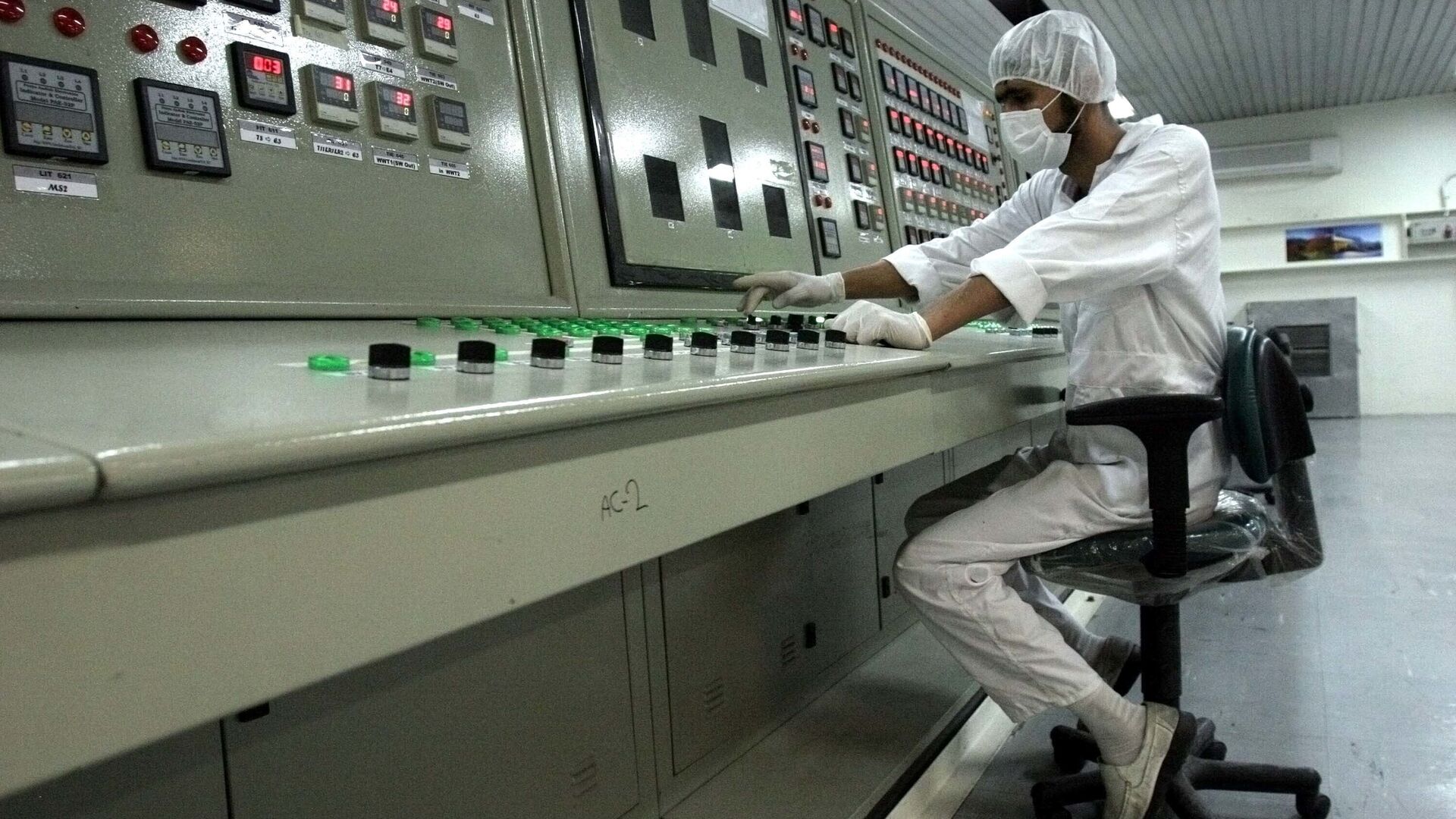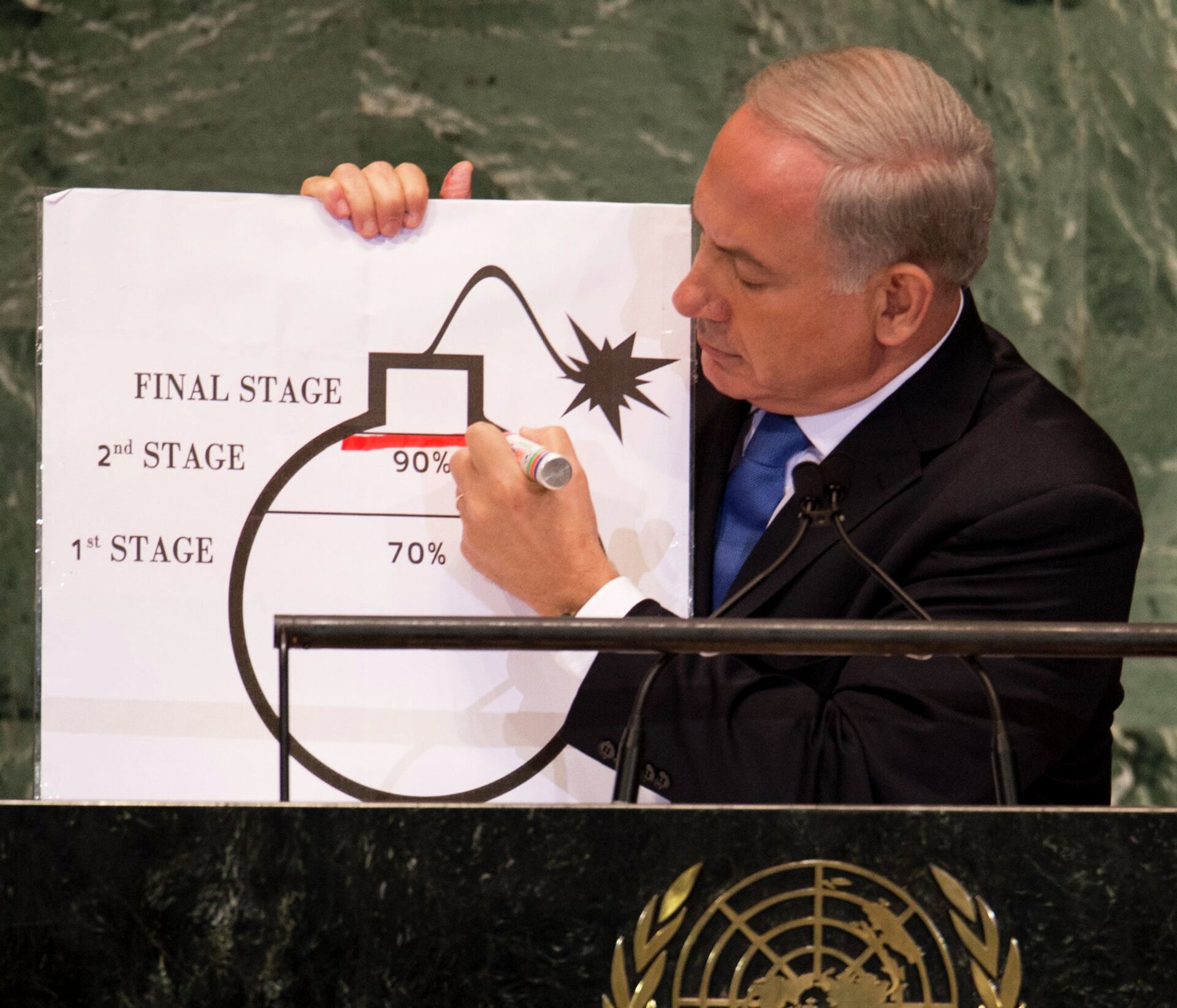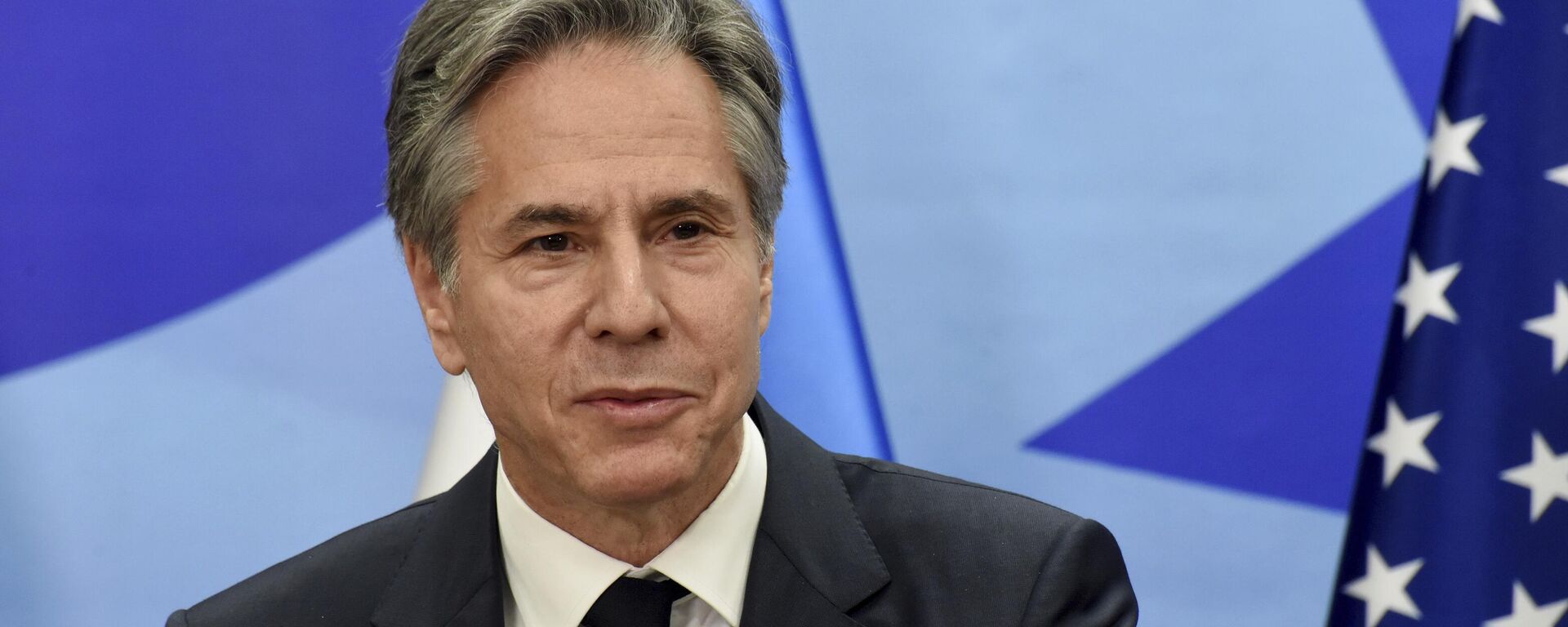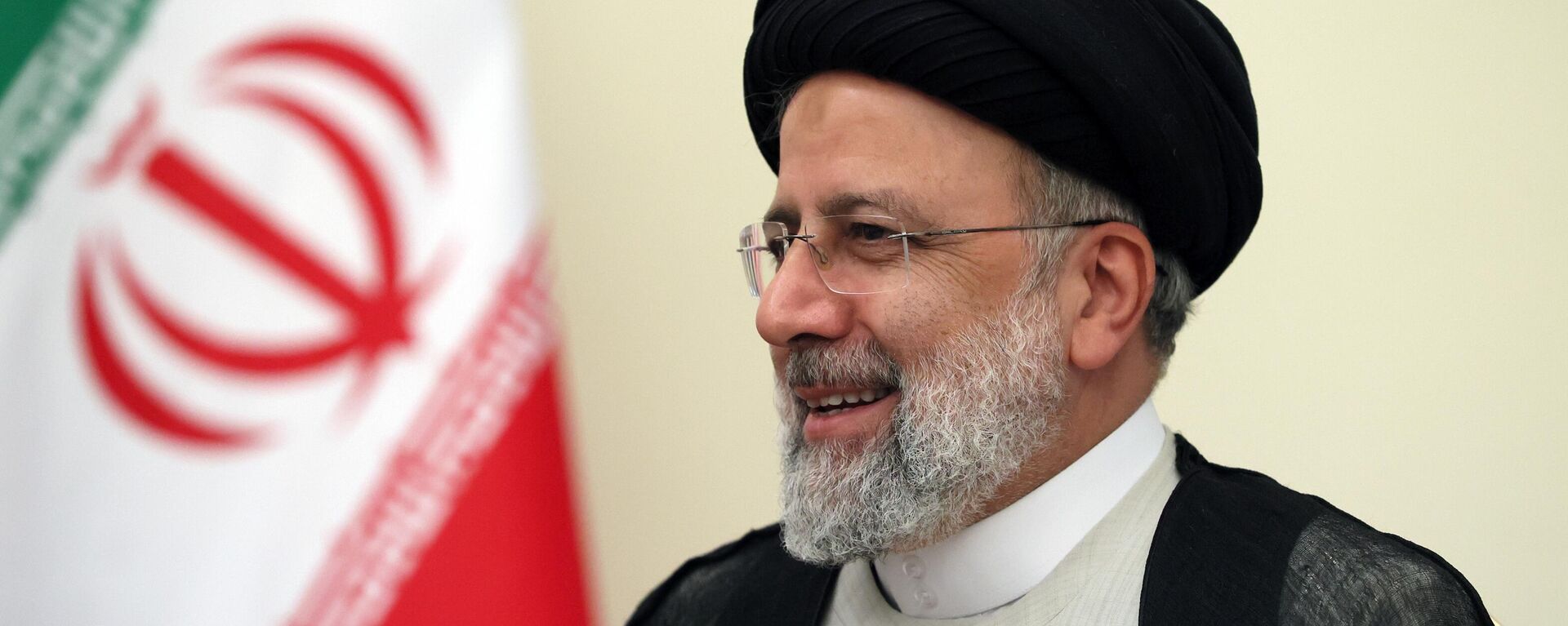https://sputnikglobe.com/20230615/mohammad-marandi-new-iran-nuclear-deal-must-be-foolproof-against-violations-1111187731.html
Mohammad Marandi: New Iran Nuclear Deal Must be 'Foolproof' Against Violations
Mohammad Marandi: New Iran Nuclear Deal Must be 'Foolproof' Against Violations
Sputnik International
The US has reportedly resumed informal nuclear negotiations with Iran, while President Ebrahim Raisi has touted the blossoming of a new world order amid his Latin America trip.
2023-06-15T14:29+0000
2023-06-15T14:29+0000
2023-06-15T14:51+0000
analysis
mohammad marandi
ebrahim raisi
iran
sputnik
brics
international atomic energy agency (iaea)
us
talks
negotiations
https://cdn1.img.sputnikglobe.com/img/07e7/02/14/1107616947_0:163:3000:1851_1920x0_80_0_0_3a0540242875b9968938166c36dfd888.jpg
US media reported this week that the Biden administration has been "negotiating quietly" with Iran on its nuclear program, and other issues complicating relations between Washington and Tehran. The "informal, unwritten agreement" being negotiated would require Iran to freeze its uranium enrichment activities at the 60 percent purity marker. If approved, this would be a major concession to the Islamic Republic, being well above the 3.67 percent enrichment limit outlined in the 2015 Joint Comprehensive Plan of Action (JCPOA) nuclear agreement, which the US walked out on in 2018.The American side also wants commitments from Iran on the expansion of cooperation with international nuclear inspectors, a "halt” of attacks on US contractors illegally operating in Syria, as well as Iraq, by Iran's militia allies, and a commitment from Tehran that it will not to sell its ballistic missiles to Moscow. In exchange, the US could pledge not to further tighten sanctions (Iran is now the second-most heavily sanctioned nation in the world after Russia), not to illegally seize any more oil tankers transporting Iranian oil, and not push for new restrictions against the country at the United Nations or International Atomic Energy Agency levels.Iranian Supreme Leader Ali Khamenei also chimed in on the nuclear talks on Sunday, saying "there is nothing wrong with the agreement (with the West) but [that] the infrastructure of our nuclear industry should not be touched."Foolproof Deal RequiredIf the Islamic Republic were to return to a nuclear accord, it would do so in a manner that prevents the US or its allies from violating their commitments and dragging their feet, Dr. Marandi told Sputnik.Delving into the history of nuclear negotiations, Dr. Marandi recalled that going back to the 2000s, European countries would make promises to reevaluate their positions on the nuclear issue, but then drag their feet for years at a time after Iran agreed to halt its nuclear activities. Even after secret talks in Oman a decade ago bore fruit and led to the signing of the JCPOA, the US and European signatories began violating their commitments "from day one," according to Marandi, slowing the pace of sanctions relief, and the US even increasing the scope of sanctions. The JCPOA mechanism ultimately fell into disrepair after the Trump administration unilaterally pulled out in May 2018.Marandi said the deal outlined in 2022 revolves around forcing all parties to commit to sequencing – that is, a step-by-step implementation of the agreement to ensure that both sides are sticking to its terms."So, since the United States was not going to compensate financially for all the damage that they did to the Iranian people (they killed cancer patients and vulnerable people), the Iranians said okay, then those technological advances and the new infrastructure that Iran had created after restarting its nuclear program after [former US President Donald] Trump tore up the deal – those have to be preserved. So Iran’s advances had to be taken into account, Iran’s new infrastructure had to be taken into account, and also a framework had to be created to make sure that the Americans carried out their commitments before the Iranians would reciprocate," the political observer said.New World Order Being Created Before Our EyesDuring the Iranian president’s regional tour of the Latin American nations of Venezuela, Nicaragua, and Cuba this week, President Raisi hailed the formation of a new world order of alliances of "independent and freedom-seeking states" created amid the decline of the US global hegemon. "Standing up against unilateralism, realizing the independence of nations, implementing justice in societies, isolating sanctions and war are among the indicators of the new world order," Raisi said.Iran is also pushing to join non-Western dominated institutions like the BRICS group and the Shanghai Cooperation Organization, Raisi added, noting that these organizations constitute the building blocks of a new world order free from foreign hegemony.Asked to comment on these developments, Dr. Marandi recalled that Tehran’s warm relations with Cuba, Nicaragua, and Venezuela go back decades, and that the fact that all three are facing similar suffocating sanctions by the US results in a "special bond" among them. Additionally, ties with the trio of nations should help Iran and the whole of Latin America "come closer to each other," especially as the US empire declines, bringing "new opportunities…for Global South countries to come together," he said.The same is true as far as Iran’s interest in joining the BRICS group of countries, the observer noted.For more incisive commentary on current affairs, tune into our Sputnik Radio show By Any Means Necessary.
https://sputnikglobe.com/20230605/blinken-reiterates-all-options-on-table-to-ensure-iran-does-not-obtain-nuclear-arms-1110930135.html
https://sputnikglobe.com/20230531/iranian-president-raisi-unilateralism-on-decline-in-world-1110819476.html
iran
Sputnik International
feedback@sputniknews.com
+74956456601
MIA „Rossiya Segodnya“
2023
News
en_EN
Sputnik International
feedback@sputniknews.com
+74956456601
MIA „Rossiya Segodnya“
Sputnik International
feedback@sputniknews.com
+74956456601
MIA „Rossiya Segodnya“
iran, united states, talks, nuclear deal, nuclear agreement, talks, nuclear, negotiations, sanctions, mohammad marandi
iran, united states, talks, nuclear deal, nuclear agreement, talks, nuclear, negotiations, sanctions, mohammad marandi
Mohammad Marandi: New Iran Nuclear Deal Must be 'Foolproof' Against Violations
14:29 GMT 15.06.2023 (Updated: 14:51 GMT 15.06.2023) The US has reportedly resumed informal nuclear negotiations with Iran. Meanwhile, Iranian President Ebrahim Raisi has touted the blossoming of a new world order during his tour of Latin America. Speaking to Sputnik, Iranian-American political observer Mohammad Marandi explained the significance of both developments.
US media
reported this week that the Biden administration has been "negotiating quietly" with Iran on its nuclear program, and other issues complicating relations between Washington and Tehran. The "informal, unwritten agreement" being negotiated would require
Iran to freeze its uranium enrichment activities at the 60 percent purity marker. If approved, this would be a major concession to the Islamic Republic, being well above the 3.67 percent enrichment limit outlined in the 2015 Joint Comprehensive Plan of Action (JCPOA) nuclear agreement, which the US walked out on in 2018.
The American side also wants commitments from Iran on the expansion of cooperation with international nuclear inspectors, a "halt” of attacks on US contractors illegally operating in Syria, as well as Iraq, by Iran's militia allies, and a commitment from Tehran that it will not to sell its ballistic missiles to Moscow. In exchange, the US could pledge not to further tighten sanctions (Iran is now the second-most heavily sanctioned nation in the world after Russia), not to illegally seize any more oil tankers transporting Iranian oil, and not push for new restrictions against the country at the United Nations or International Atomic Energy Agency levels.
Iranian Supreme Leader Ali Khamenei also chimed in on the nuclear talks on Sunday,
saying "there is nothing wrong with the agreement (with the West) but [that] the infrastructure of our nuclear industry should not be touched."
If the Islamic Republic were to return to a nuclear accord, it would do so in a manner that prevents the US or its allies from violating their commitments and dragging their feet, Dr. Marandi
told Sputnik.
"We have to keep in mind the history of what happened, and that is that for decades now, there has been a standoff between Iran and the United States. And it’s been based upon misinformation. In other words, [Israeli Prime Minister Benjamin] Netanyahu for example has been claiming for roughly 30 years now that Iran is on the verge of developing a nuclear weapon. In fact I think around 30 years ago, he said 'it's months away.' So this misinformation that comes out of the West or their allies has been the foundation upon which they put pressure on Iran," the political observer said.
Delving into the history of nuclear negotiations, Dr. Marandi recalled that going back to the 2000s, European countries would make promises to reevaluate their positions on the nuclear issue, but then drag their feet for years at a time after Iran agreed to halt its nuclear activities. Even after secret talks in Oman a decade ago bore fruit and led to the signing of the JCPOA, the US and European signatories began violating their commitments "from day one," according to Marandi, slowing the pace of sanctions relief, and the US even increasing the scope of sanctions. The JCPOA mechanism ultimately fell into disrepair after the Trump administration unilaterally pulled out in May 2018.
"So the Iranians are saying that if we are going to restart a nuclear deal, we have to make it foolproof so that the Americans and the Europeans can no longer violate it, so that they can no longer tear it up without consequences. And so the talks, the negotiations that we had last year in Vienna were basically to provide a framework of protection for the 2015 nuclear deal so that there will be no ambiguities, so that there would be no loopholes, so that everyone would have to abide by the commitments. We came close, the text was almost ready, but the Americans got cold feet, and ever since, we’ve been waiting to see if the Americans find the political will to sign the deal," the observer, who was directly involved in the 2022 talks as a de facto spokesman, explained.
Marandi said the deal outlined in 2022 revolves around forcing all parties to commit to sequencing – that is, a step-by-step implementation of the agreement to ensure that both sides are sticking to its terms.
“The other aspect of the talks that were held was that since the Americans had torn up the deal and since [former US President Barack] Obama had violated the deal, a lot of damage was done to Iran."
"So, since the United States was not going to compensate financially for all the damage that they did to the Iranian people (they killed cancer patients and vulnerable people), the Iranians said okay, then those technological advances and the new infrastructure that Iran had created after restarting its nuclear program after [former US President Donald] Trump tore up the deal – those have to be preserved. So Iran’s advances had to be taken into account, Iran’s new infrastructure had to be taken into account, and also a framework had to be created to make sure that the Americans carried out their commitments before the Iranians would reciprocate," the political observer said.
New World Order Being Created Before Our Eyes
During the Iranian president’s regional tour of the Latin American nations of Venezuela, Nicaragua, and Cuba this week, President
Raisi hailed the formation of a new world order of alliances of "independent and freedom-seeking states" created amid the decline of the US global hegemon. "Standing up against unilateralism, realizing the independence of nations, implementing justice in societies, isolating sanctions and war are among the indicators of the new world order," Raisi said.
Iran is also pushing to join non-Western dominated institutions like the BRICS group and the Shanghai Cooperation Organization, Raisi added, noting that these organizations constitute the
building blocks of a new world order free from foreign hegemony.
Asked to comment on these developments, Dr. Marandi recalled that Tehran’s warm relations with Cuba, Nicaragua, and Venezuela go back decades, and that the fact that all three are facing similar suffocating sanctions by the US results in a "special bond" among them. Additionally, ties with the trio of nations should help Iran and the whole of Latin America "come closer to each other," especially as the US empire declines, bringing "new opportunities…for Global South countries to come together," he said.
The same is true as far as Iran’s interest in joining the BRICS group of countries, the observer noted.
"Iran, because of the maximum pressure sanctions and because of the behavior of the United States over the past few decades toward the country and especially over the last decade, has a huge incentive to create alternatives and alternative mechanisms for business and trade. Therefore, I think it is probably more incentivized than most other countries. Of course, now that the United States has sanctioned so many other countries like Russia, Venezuela, Cuba, Syria – many countries are now sanctioned or beginning to be sanctioned, like China, this incentive has grown quickly. But for Iran, this is a huge opportunity so that the United States can no longer strangle ordinary Iranians," Marandi summed up.
For more incisive commentary on current affairs, tune into our Sputnik Radio show By Any Means Necessary. 




